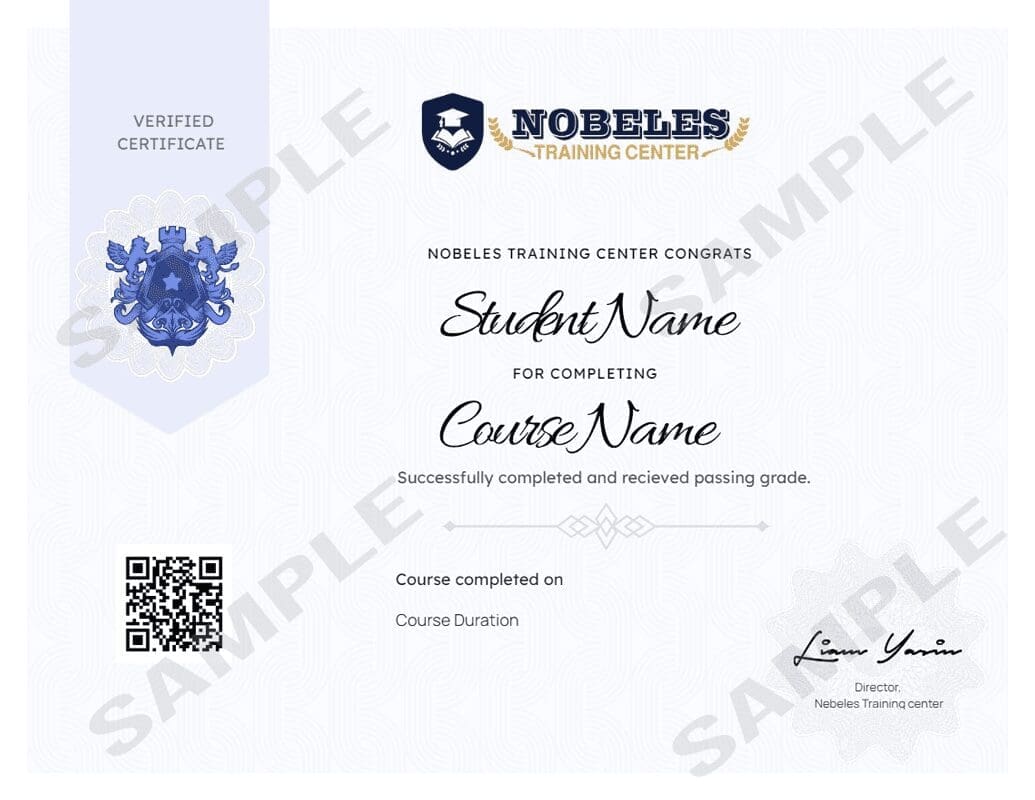Description
Curriculum
Instructor
Supervising others can be a tough job. Between managing your own time and projects, helping your team members solve problems and complete tasks, and helping other supervisors, your day can fill up before you know it. This workshop will help supervisors become more efficient. They will also become more proficient with delegating, managing time, setting goals and expectations (for themselves and others), providing feedback, resolving conflict, and administering discipline.
Curriculum
- 11 Sections
- 0 Lessons
- 10 Hours
Expand all sectionsCollapse all sections
- Setting ExpectationsSetting expectations involves clearly communicating goals, responsibilities, and performance standards to team members. This clarity fosters accountability, aligns efforts, and enhances productivity, ensuring everyone understands their roles in achieving organizational objectives.0
- Setting GoalsSetting goals involves defining clear, measurable objectives for team members to achieve. This process promotes focus, motivation, and accountability, driving performance and encouraging collaboration toward shared outcomes within the organization.0
- Assigning WorkAssigning work involves delegating tasks based on team members' strengths and skills. Effective delegation enhances productivity, fosters accountability, and promotes professional development while ensuring that organizational goals are met efficiently.0
- Degrees of DelegationDegrees of delegation refer to the varying levels of authority given to team members. By adjusting delegation—from full authority to limited tasks—managers empower employees, promote ownership, and ensure effective decision-making while maintaining oversight.0
- Implementing DelegationImplementing delegation involves clearly defining tasks, selecting the right individuals, and providing necessary resources and authority. Effective delegation fosters trust, enhances team performance, and develops employees’ skills while freeing up managers for strategic tasks.0
- Providing FeedbackProviding feedback involves delivering constructive, timely, and specific information about performance. This process fosters growth, reinforces positive behaviors, and addresses areas for improvement, ultimately enhancing individual and team effectiveness and morale.0
- Managing Your TimeManaging your time involves prioritizing tasks, setting clear goals, and utilizing tools to organize responsibilities effectively. By balancing deadlines and delegating appropriately, individuals can enhance productivity and reduce stress in the workplace.0
- Resolving ConflictResolving conflict involves addressing disagreements through open communication, active listening, and collaboration. By seeking common ground and promoting understanding, managers can foster a positive work environment and strengthen team relationships, enhancing overall productivity.0
- Ten Tips for Special SituationsTo manage special situations effectively, stay calm, listen actively, communicate clearly, involve stakeholders, set boundaries, seek win-win solutions, follow up, and reflect on outcomes for continuous improvement.0
- A Survival Guide for the New SupervisorNew supervisors should prioritize clear communication, build trust, set expectations, seek feedback, foster team collaboration, manage time effectively, and continuously develop their leadership skills for successful transitions.0
- Post-TestPost-Test0
Nobles Center

5 Students146 Courses
Review
$225.00
226 students
0 lesson
Language: English
0 quiz
Assessments: Yes
Skill level All levels
Nobles Certificate
At the end of the course, you can download a copy of your certified certificate.
Nobeles Academy
Mobile Application
Download the Nobeles center mobile app from the app app store, click the button below
Courses you might be interested in
Working in a home office requires a unique set of skills. Teleworkers or virtual employees have additional challenges created by not being in a centralized office. Communication issues alone make...
-
1 Lesson
$175.00
Having the technical skills and knowledge to successfully execute your job duties is only one part of being the best you can be in the workplace. In addition to these...
-
0 Lessons
$225.00
The cloud has become a vital component for business as technology becomes embedded in modern life. Every leader needs to understand the cloud and how it operates, as well as...
-
0 Lessons
$195.00
Phone skills are a highly valuable tool to have in an employee’s skill-set, and Call Center Training will help provide those skills. This course will help = improve phone skills...
-
0 Lessons
$275.00






